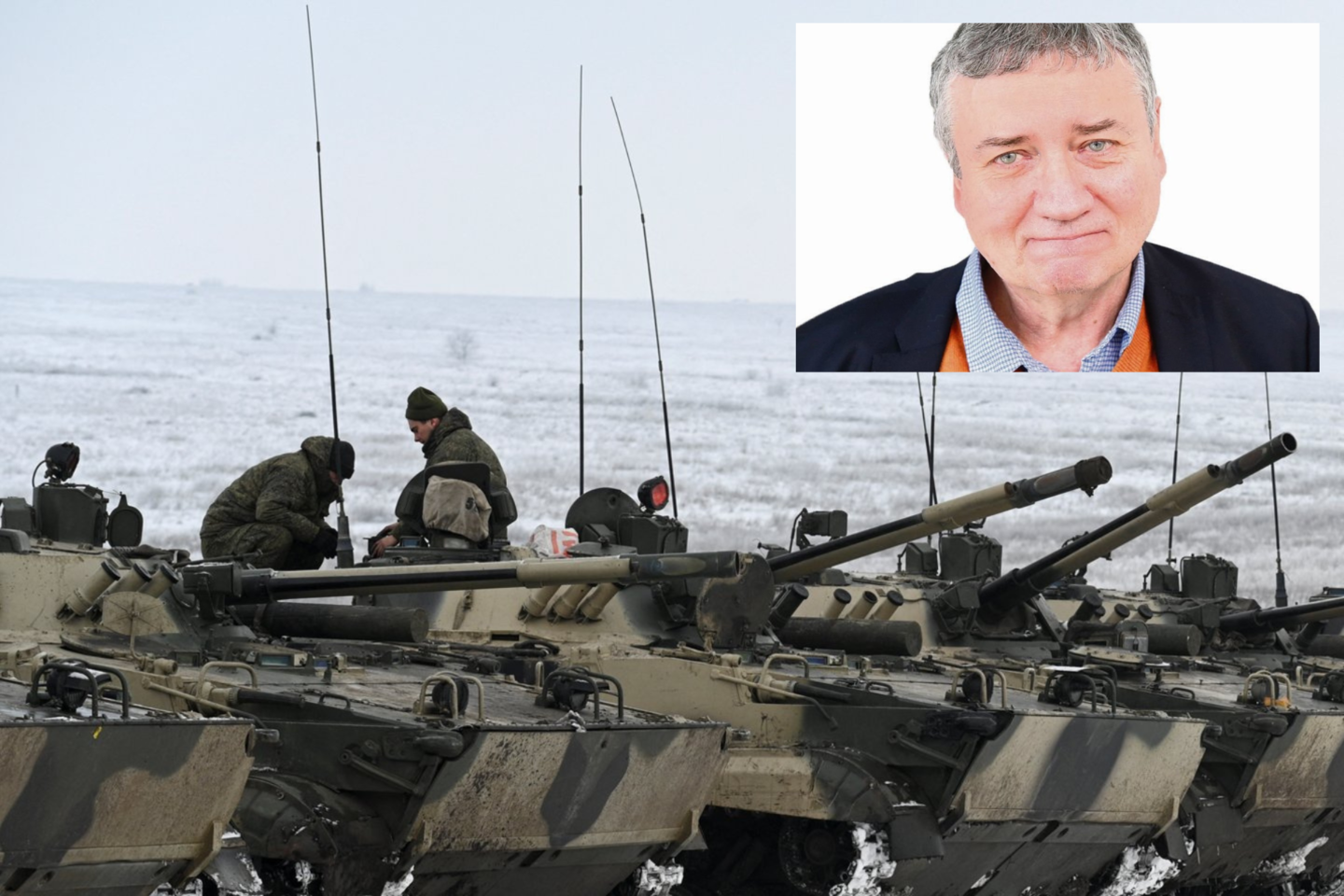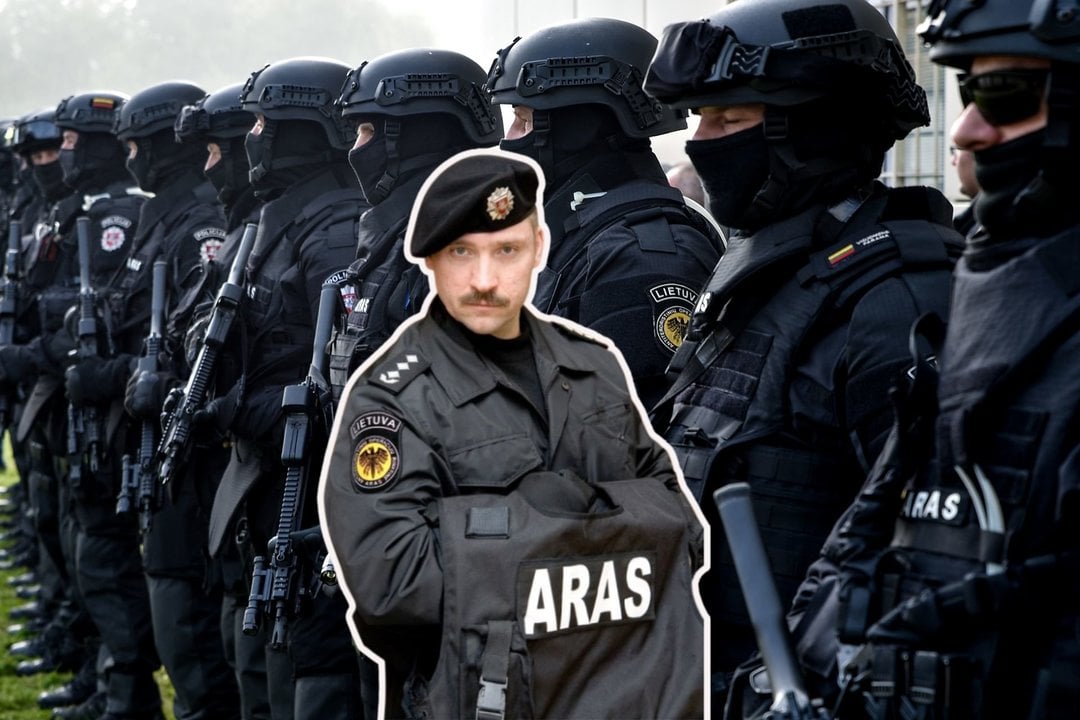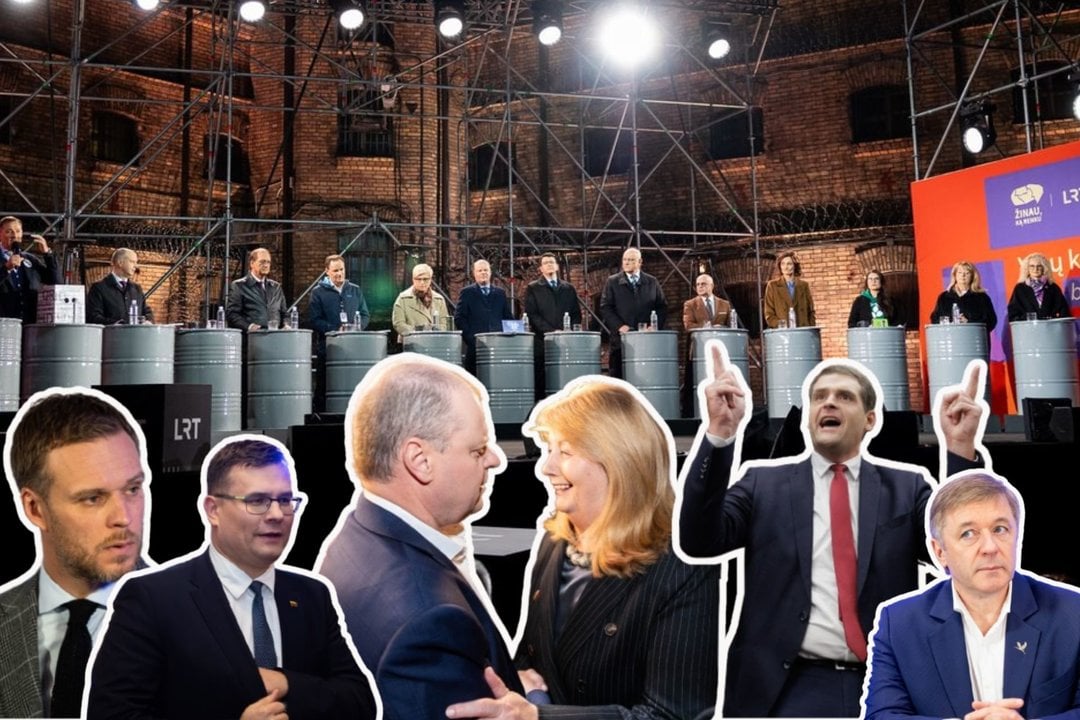Perhaps these are wishes for a bright future, reminiscent of jubilee toasts, which no one believes in, not even the jubilarian himself. But I believe that there will be no more wars in Europe, and this belief is not waning as more and more prophecies echo that they are imminent.
Perhaps this optimism has taken hold because I quite like quiet peace and am not at all attracted by its replacement by the thunder of explosions, while the prophets of war seem to be itching to hang with Russia. Victoriously, of course.
Listening to some political and military strategists proclaiming that war with Russia is simply inevitable, one gets the impression that the probability of war with Russia is something like 99%, which means that it would be a miracle if it did not start.
I think it is more worth believing M. Laurinkus, who comments on geopolitics in Lietuvos rytas, who says that, on the contrary, a serious war is unlikely, and if it were to happen, it would only be a soldier's act, a flexing of military muscles, albeit unpleasant, with nasty consequences.
When the prophets of war inflate the probability of war to 99%, I tend to add a zero to their predictions and say that it is 0.99%, or maybe even 0.099%, in other words, a bit higher than flying to America and plunging into the depths of the Atlantic, but a bit lower than going to work and having a bell ringing in the back of your head.
Of course, military strategists know better, they assume they know everything, and the author of this commentary himself often feels that he knows nothing and that there is less and less time left to find out anything else. However, listening to the prophets of war, it is beginning to seem that the probability of war is equally reasonable at 99% and 0.99% – a complete fog without argument.
It is a matter of faith – believe it or not. An ordinary person's head may well spin when the former commander of the Lithuanian Armed Forces, V.Tutkus, explains that the probability of war is low, while the current commander, V.Rupšys, explains that it is pretty real. One should probably have more faith in the current commander, but both are lieutenant generals and should be similarly intelligent and competent.
The confusion is even greater when there are alarms even from the White House that a Russian attack on Ukraine is imminent and imminent. Then Kyiv, which has never contradicted the US, starts to get angry and to reassure that the danger has been greatly exaggerated. And what does White House Press Secretary Psaki do? She promises not to use such terrible words again.
Kyiv's viragoes are understandable: it asks for urgent military aid, calls for sanctions to be imposed on Russia in advance, and does not go out of its way to explain that there is unlikely to be a war.
But when Ukrainians rush out to buy flour, buckwheat, salt, sugar and matches, when the Hryvnia and the shares of Ukrainian companies fall, and when foreign investors start to reel in their fishing rods, we have to turn the tables and say that the wolf is grey, of course, but his teeth are bared.
Lithuania has not yet been so frightened by war, and buckwheat and flour have not disappeared from the shelves, even though the scaremongers have been out in force. It seemed that if the war started in Ukraine, it would soon spread to Lithuania. Then, Kyiv explained that this would not be a Russian war on Ukraine, but a war across Europe. And who is on the front line of the European front? Lithuania, of course, plus Latvia, Estonia and Poland.
Things are a little calmer now. There is talk that Putin will fight only in Ukraine. At least for now. And we are protected by NATO, so he will not enter our territory yet.
I daresay he will not go into Kyiv either, as the prophets of war who are already planning a stubborn partisan resistance by Ukrainians against the Russian occupation of their country are fearing.
Of course, Putin has painted himself into a corner with his ultimatums, which he himself does not call ultimatums. His propagandists, such as Solovyov, describe them only in those terms. It isn't easy now to find a way out of the impasse without tarnishing the halo of a world leader who is consistently winning. Therefore, it is impossible to completely rule out the possibility that Russia will do something sinister in Ukraine.
Ukrainian President Zelensky has spoken of the possibility of Russia attacking Kharkiv, an important military-industrial centre near the Donbass. This is probably the maximum amount of shenanigans that can be expected from Mr Putin. That he would try to occupy the whole of Ukraine is a scenario that only the prophets of war themselves can believe.
Putin is a dictator, but he is not a madman at all. He can certainly calculate the risks and consequences of such aggression, which would bring the world to the brink of total nuclear annihilation. After all, Russia is not ruled by one Putin, and however much power he may have, there is a political and economic elite that enjoys the pleasures of Western life. Nobody wants to die.
Even an attack on Kharkiv would be too costly for Russia – the country would be totally isolated and the benefits would be very doubtful.
It is more likely that Russia will recognise the so-called separatist republics of Donetsk and Luhansk as independent, like Georgia's Abkhazia and South Ossetia, openly introduce its troops there, draw up borders and threaten Ukraine with war if it crosses them. That should be the end of Russia's military march.
What should Lithuanians do? At least not to attack buckwheat stocks. Then, we will not need it.




